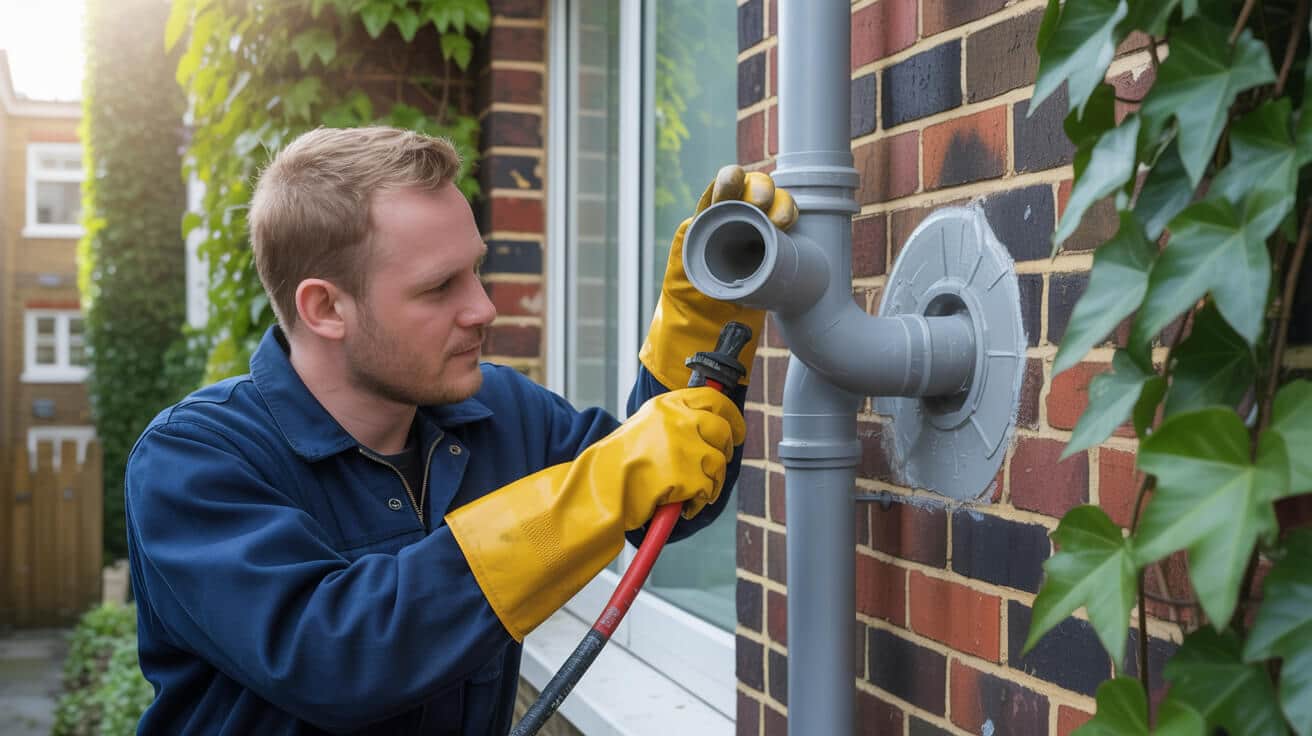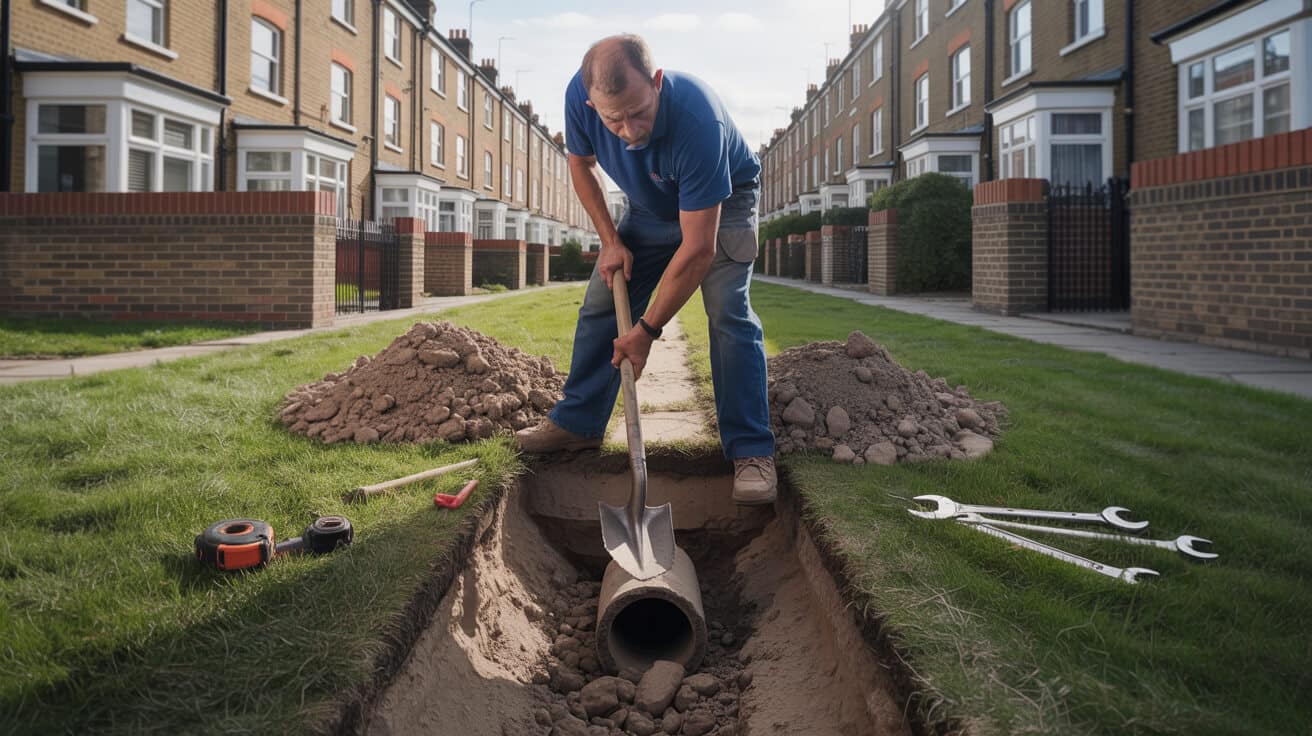 How to Resolve a Heating Conflict Between Tenant and Landlord
How to Resolve a Heating Conflict Between Tenant and Landlord

Why Do Heating Repairs Create So Much Tension Between Tenants and Landlords?
Every winter, as the mercury drops, something predictable happens in UK homes and commercial properties: heating stops working, urgency spikes, and fingers start pointing. Landlords brace for phone calls, tenants count down the minutes until the living room warms back up, and letting agents often find themselves stuck in the middle, juggling legal risk, tenant distress, and the realities of engineer availability.
Arguments over heating repairs rarely come down to money alone—it’s often about clarity and control.
Heating disputes are rarely about a single broken valve or a rogue thermostat. Instead, the real tension sits in the space between legal obligation and personal expectation. On the one hand, tenants expect a warm, safe space—protected by UK law and human decency. On the other, landlords and managing agents face real costs: engineer fees, compliance paperwork, and sometimes aggressive timelines to avoid council penalties or insurance headaches.
Clashes escalate for three main reasons:
- Unclear responsibilities: Even with regulations, day-to-day situations create confusion about who should do what, and how fast.
- Slow or unclear communication: Phone calls vanish, emails get lost, and misunderstandings grow.
- Low trust on both sides: Every delayed fix, rough interaction, or history of ignored issues adds friction before a new repair even begins.
The result is too familiar: tempers fray, tenants threaten escalation, landlords worry about fines, and nobody feels in control. If the property houses vulnerable people—kids, elderly, anyone with health issues—the stakes feel even higher.
But here’s the real driver: heating failures expose a gap between legal minimums and the lived experience of safety and comfort. Unless repairs are handled transparently, tension will always rush in to fill that gap.
Why Are “Heating Rows” So Common?
Heating disputes spike when expectations aren’t met—or when either side feels ignored. A cold flat at midnight, a call that rolls to voicemail, or an agent who promises “I’ll chase this tomorrow” can all prompt anxiety and anger. From the landlord side, suspicion that tenants “don’t report issues in time” or “have fiddled with the controls” fuels reluctance to act immediately. It’s a cycle that repeats every year, from single lets to city blocks.
Every minute in the cold erodes trust between the people who share responsibility for a safe home.
As a property owner, manager, or tenant, the only way out is through: clarity, speed, and bulletproof documentation. Without these, heating problems become battles—never just repairs.
Which Laws and Standards Actually Govern Heating Repairs in UK Rentals?

It’s easy to fall into second-hand assumptions (“landlords must fix everything, right?” or “I’m just a tenant—it’s not my job to call a boiler engineer”). But the UK system is not as hazy as most think. Landlords, tenants, and agents each shoulder explicit, regulated duties—and understanding where these lines are drawn prevents both overreach and neglect.
Your comfort isn’t a perk—it’s legally protected.
Landlord Obligations: Black and White, No Excuses
By law, landlords must keep all heating systems (boilers, radiators, controls, pipes) in good repair throughout every tenancy. There is no seasonal pause, wriggle room for “busy periods,” or get-out clause for multi-property portfolios. Key statutes:
- Landlord and Tenant Act 1985, Section 11: – Demands continuous, fit-for-use heating and hot water. Landlords pay for repairs unless the tenant demonstrably caused the problem.
- Homes (Fitness for Human Habitation) Act 2018: – Requires every rental to be health-safe and warm; recurring loss of heat is a legal breach.
- Housing Health and Safety Rating System (HHSRS) Guidelines: – Cites heating outages as a Category 1 hazard, especially for children, elderly, or vulnerable adults.
- Gas Safety (Installation and Use) Regulations 1998: – Mandate annual boiler checks (CP12), safe instal paperwork for new systems, and only Gas Safe work.
Landlords also must:
- Promptly reply to written fault reports and log every step—delay equals risk.
- Schedule repairs using legally certified engineers.
- Document every booking, fix, and compliance certificate.
- Provide evidence to the tenant on request (CP12, WRAS, or G3 certs).
Tenant Duties: Report, Grant Access, Avoid Harm
Tenants meanwhile are responsible for quickly notifying their landlord or agent when heating or hot water fails. Delayed reporting prolongs discomfort and can undermine legal protection if a dispute escalates.
Tenant responsibilities include:
- Immediate fault reporting: (ideally in writing, with photos—more in the next section).
- Enabling access: for inspections and repairs at reasonable times.
- Not tampering: with the heating system or using unapproved heaters in an emergency.
- Preventing further damage: (e.g., isolating the water supply if a pipe bursts).
The law expects tenants to act reasonably—but also protects them from being left in the cold.
The Agent’s Role: Accountability, Not Just Postboxing
Property agents aren’t just message-passing intermediaries. Once notified by a tenant, the agent assumes responsibility for passing on, booking, and overseeing repairs per the landlord’s obligations. Failing to do so opens them to legal and reputational risk—and in practice, councils often hold agents accountable for “failure to act” if the owner is unresponsive.
How Can Landlords, Agents, and Tenants Build Evidence to Avoid “Word-vs-Word” Stalemates?

When heating goes out, facts beat memory. The fastest track from complaint to resolution is a clean trail of evidence—photos, timestamps, written requests, and repair records.
A single, dated photo of a cold radiator often prevents weeks of blaming.
Your Immediate Evidence Protocol
- Take photos or video: Capture error codes, thermostats showing no heat, cold radiators, or water at the tap. Timestamped images trump verbal reports.
- Log symptoms in writing: Specify *when* the problem started, what’s actually broken, and any attempts to resolve it (e.g., resetting the boiler, bleeding radiators, checking power).
- Send a written report: Email both the landlord and agent—attach your evidence, describe the issue, and request a visit date in writing.
- Track replies: Build your case with every response—store engineer job sheets, texts, and confirmation emails in a running log or folder.
- Highlight risk factors: If the property includes infants, elderly people, or those with medical conditions, make this clear up-front—HHSRS demands extra urgency.
For landlords and agents, mirror this process:
- Log every contact: Date/time, method of report, engineer booking, fix confirmation—store it all. Digital CRM systems can automate this, but even a simple spreadsheet works.
- Request engineer documentation: Obtain and keep work reports, invoices, and any compliance paperwork.
- Communicate in writing: Avoid promising tenants fixes without confirmed booking or technician assignment. Never rely on phone-call memory; always follow up by email.
If repair disputes reach a council or small-claims court, evidence—not excuse or intention—will decide the outcome.
What Does a Legally Recognisable Heating Fault Notification Include?

Verbal reports vanish, but a well-formed written notification is a legal trigger. This sets the clock ticking for repairs, helps both sides prove their diligence, and creates a record that councils and insurers respect.
A well-crafted email, with evidence attached, is your strongest safeguard.
A compliant notification should:
- State the issue clearly: “The boiler stopped working at 6:40am on Monday. All radiators are cold, with F28 on the display.”
- Attach proof: Photos/videos of error codes, thermostats, or unresponsive radiators.
- Declare risk urgency: List ages, health circumstances, and any relevant vulnerabilities in the property.
- Request a timeline: Ask for confirmation of an engineer visit and estimated repair date in writing.
- Avoid vagueness: Insist on a clear acknowledgment—don’t accept “we’ll see what we can do” as a formal response.
Landlords/agents should:
- Acknowledge receipt: Confirm the report in writing (within 24 hours is best), log it, and provide engineer booking details.
- Provide updates: If parts are delayed, or engineers are unavailable, communicate setbacks clearly and reset expectations.
A strong paper trail rooted in evidence—not emotion—makes escalation to council, insurers, or even small-claims straightforward if the fix is slow or incomplete.
How Fast Should Heating Repairs Take—and What Do Legal and Industry Standards Require?

Speed matters, but what’s “reasonable” depends on urgency, season, and occupant risk. However, councils and the law set clear expectations, especially in winter or for vulnerable tenants.
Speed isn’t just about comfort; it’s about safety—and compliance.
Typical Timelines
- Winter or urgent loss of heating/hot water: Engineer attendance within 24 hours; vulnerable tenants or young children raise the bar even more.
- Non-urgent repairs: 48 hours is standard; anything longer needs documented justification (e.g., parts availability).
- Interim solutions: If immediate repair isn’t possible, portable heaters or temporary arrangements may be required—especially for vulnerable households.
- Mandatory documentation: After repair completion, landlords and agents should confirm the fix in writing and issue compliance paperwork or warranties (e.g., CP12, G3 certificates).
For persistently unresolved issues or repeated failures, tenants can:
- Contact the local council’s Environmental Health team, sharing their evidence trail.
- Seek support from advocacy services like Shelter or Citizens Advice.
- Seek reimbursement if forced to self-organise repairs after ample, documented notice is ignored.
Landlords and agents should:
- Maintain and share post-repair documentation automatically.
- Proactively monitor compliance calendars (CP12, boiler servicing, G3 checks).
Sticking to best-practice timelines isn’t just good service—it’s regulatory risk management.
What’s the Best Way to Escalate a Stalled Heating Repair, Without Legal Fallout?

Unanswered emails, failed engineer bookings, or delays that leave tenants in the cold for days can all trigger formal escalation. Both sides need a clear, evidence-backed process to avoid expensive missteps.
Staying silent risks fines—escalation gets the system moving.
Tenant Escalation Strategy
- Compile a timeline: Gather dates, messages, photos, and all engineer reports.
- Trigger a formal complaint: Email the council’s Environmental Health department, outlining the issue and supplying your evidence.
- Use advocacy: Template letters and support are available from Shelter or Citizens Advice; leverage them for maximum clarity.
- Self-organised repair (as last resort): If the landlord/agent fails to act after ample notice, you may arrange your own fix—save receipts and documentation for compensation claims.
- Protect against retaliation: If you escalate via council, you are legally shielded from “revenge” eviction after a formal notice is served—provided your case is rooted in evidence.
Landlord and Agent Response Path
- Acknowledge and log every issue: Quick, clear written response buys goodwill and credibility.
- Escalate to certified pros: Complex repairs demand Gas Safe or WRAS-certified engineers—never accept “handyman” shortcuts.
- Document all steps: Each contact, booking, fix, and certificate should be logged and easily retrievable.
- Communicate openly: If delays are out of your control (e.g., manufacturer is slow on parts), set expectations early and keep proof.
Smart landlords and agents see escalation as a final backstop, not a threat. When evidence is tight, disputes get resolved—fast and fairly.
Why Does Documentation Win Every Heating Dispute?

Heating disputes hinge on proof. It’s not the loudest voice, longest email thread, or deepest pool of sympathy that decides outcomes—it’s the crispest, most complete record.
A repair file with dates and photos speaks louder than any argument.
What Evidence Holds Up?
Tenants Should Archive:
- Each and every written repair request (email, text).
- Images/edit logs of symptoms or engineer repairs.
- Engineer’s notes, council letters, or advocacy templates.
- Expenses (temporary heaters, taxis, alternative accommodation).
- Medical or vulnerability evidence (if relevant).
Landlords/Agents Must Store:
- Every notification received, with timestamps and acknowledgments.
- Engineer job logs, compliance certificates, and full repair documentation.
- Tenant acknowledgment or written satisfaction after repairs.
- All certificates (CP12 gas, G3, WRAS, etc.).
- Digital folder or CRM entries for at least 12 months after tenancy end.
Landlords managing large portfolios or agents working across multiple properties should digitise this entire process; automated reminders and CRM audit trails can dramatically reduce missed inspections and lost records.
Well-kept files not only win disputes but also speed up insurance claims, council inspections, and property resales.
What Outcomes Can Both Parties Expect From Handling Heating Conflicts Properly?

The difference between a protracted, stressful ordeal and a straightforward solution usually comes down to process and clarity. When documentation is solid and all sides know their part, nearly every heating dispute resolves quickly—with both sides acknowledging fairness (and avoiding hefty penalties).
Trust isn’t built in the courtroom; it’s built with every prompt repair.
The Benefits of Evidence-Driven Action
- Tenants: Quicker heating/restoration, eligibility for rent reduction if repairs are slow, and legal protection against unfair eviction or accusation.
- Landlords/Agents: Fewer losses to fines or rent claims, lower insurance risks, faster property cycles, and improved market reputation.
- All parties: Strong, professional communication—repeat business, positive reviews, and smoother ongoing tenancies or property management.
- Regulatory peace of mind: With a full paper trail, legal threats from councils, insurers, or advocacy groups carry far less bite.
Ignoring the process only ensures more disputes, more stress, and in many cases, unnecessary costs for everyone involved.
Choose Plumbers 4U for Certainty and Speed
A cold or broken heating system isn’t just a technical hitch—it’s a direct hit to your comfort, your rights, and your peace of mind. The path from frantic phone call to warm radiators shouldn’t be a maze of delays, blame games, or legal grey zones.
Plumbers 4U is built for fixing more than just your boiler—we restore trust, compliance, and calm. Our engineers are WRAS-Approved, Gas Safe Registered, and G3 Certified. Every visit comes with photo logs, proper paperwork, and answers that make sense—never just a “we’ll get to it” shrug.
- 24/7 coverage nationwide: No callout is ever too early or too late.
- Same-day and emergency attendance for loss of heat or hot water.:
- Clear, honest pricing—every cost explained in plain English.:
- Full aftercare and paperwork: CP12, G3, WRAS documentation delivered digitally.
- Proactive compliance support for landlords, agents, and property managers.:
- A “fix-first, upsell-never” promise—your comfort comes before commission.:
Stop arguing about paperwork, timelines, or responsibilities. Bring in Plumbers 4U—and know the job will be done right, the records will be there if anyone asks, and everyone—tenant, landlord, or agent—gets to feel like the professional in the room. That’s a real fix.
Frequently Asked Questions
Why is quick, expert heating repair a non-negotiable landlord duty in UK rentals?
A working, safely maintained heating system isn’t just a comfort—it’s an absolute legal requirement for anyone letting out property in the UK. At every tenancy level, from family homes to managed commercial sites, the law fixes responsibility for repairs and servicing squarely on the landlord. No tenancy clause or agent contract can override this; whether it’s a combi boiler, unvented hot water tank, smart control, or underfloor loop, keeping the system safe and functional is not optional.
When warmth fails, so does a landlord’s legal standing—prompt action isn’t just good practice, it’s non-negotiable compliance.
Which heating issues can never be shifted onto tenants by contract?
- Faults from age, system wear, installer mistakes, or component failure.
- gas leaks, boiler lockouts, loss of pressure, or radiators not heating.
- unvented cylinder safety checks (G3), central heating maintenance, or any work needing qualified trades.
Even if you sign a tenancy with a clause trying to shift these repair risks onto you, it’s legally void in practice. Landlords must schedule and fund rapid, qualified fixes—using Gas Safe, G3, or WRAS-accredited professionals as required. If they try to offload these duties, or agents delay access, enforcement escalates fast: councils can impose improvement notices, fine, or even claw back rent. You’re never legally responsible for the cost or execution of these essential repairs—your duty is simply to report issues quickly and cooperate with scheduled works.
When do tenants have a genuine responsibility in heating upkeep?
- Reporting faults promptly—always in writing, even for “minor” problems.
- Giving reasonable access for engineers.
- Not deliberately damaging or misusing heating equipment.
There’s no valid pathway for a landlord to make you pay for repairs caused by normal use, fair wear, or installer error—regardless of any “special” clause or agency waiver in the contract.
What steps create undeniable proof if your landlord ignores heating repair requests?
The strongest leverage in any heating dispute is an ironclad, time-stamped paper trail. Whether you’re dealing with a single property, multiple lets, or a commercial site—councils and ombudsmen respond first to clear, unbroken documentation.
The more facts you record, the faster you force a landlord’s hand—uncertainty is replaced by action.
What’s needed for bulletproof evidence?
- Written/factual reports: Email, text, or logged app notifications—always include fault date, nature, and any error codes.
- Visuals: Date-stamped photos of thermostats, error screens, frosted pipes, or leaks. Short videos help to demonstrate intermittent faults.
- Chronological ‘repair diary’: List every communication, visit, missed engineer, and promises made. Note full names and times.
- Receipts for actual costs: Portable heaters, hotel stays, or extra gas bills become direct evidence if compensation is later claimed.
- Highlighting vulnerability: Children, elderly, or those with medical needs—detail their circumstances, as this drives councils to faster action.
Organise these in both digital and hardcopy folders for instant access and credibility. If the heating issue continues, this documentation is what bridges the gap between complaint and formal intervention—unlocking council action or rent repayment orders.
How can you turbocharge resolution for heating repairs landlords drag out?
When the landlord or their agent stalls, don’t just wait—the law expects strategic escalation. Move quickly from reporting to action in nested steps, strengthening your evidence at each phase:
Escalation ladder for unresolved heating faults
- Submit a second written request: Reference your initial report, attach new evidence, and make your request for urgent repair explicit.
- Continue daily logging: Track temperature drops, failed appointments, and all landlord or agent communications—including unreturned calls.
- Notify council Environmental Health: Most have direct submission forms—attach your entire log and indicate vulnerability or risk.
- Request support from specialist groups: Shelter, Citizens Advice, or local law clinics often provide templates or can intervene.
- Consider expert-driven “repair and deduct”: Only as a last resort, and after professional legal advice—never skip the paperwork or pre-authorisation steps.
Staying composed, keeping communication polite but persistent, and paying rent on time only strengthens your position at every escalation.
Why does rent payment matter in disputes?
Pausing or withholding rent in response to disrepair nearly always backfires. UK tribunals look for evidence of good faith—so paying consistently and logging calmly usually converts your grievance into enforceable action, not risky confrontation.
When do councils or ombudsmen move fastest on heating complaints?
Action accelerates when time-stamped, health-based risks are clear and the repair log shows urgency unmet. UK authorities force landlords to act in 24–48 hours during cold weather or when vulnerable people (children, elderly, health conditions) are at risk.
Who steps in—and how?
- Council Environmental Health: Steps in for dangerous delay, inappropriate repairs, or evidence of disregard. Powers include legal notices, fines, freezing “no-fault” eviction processes, and even prosecution.
- Housing Ombudsman: Covers social housing or large letting agencies when internal complaints hit dead ends.
- Property Ombudsman (PRS): Handles disputes against managing agents in private tenancies—sometimes this is the fastest path if agents are dragging their feet.
- Private Rented Sector Ombudsman (from 2024): Will provide an official backstop for tenants in privately let homes unable to get heating restored promptly.
One fact-packed, health-aligned log can skip the queue and rocket your case to priority—councils act decisively when risk is proven.
Table: Escalation routes by issue type
An at-a-glance summary of where each issue lands for fastest action:
| Problem Type | First Escalation | Fastest Intervention Trigger |
|---|---|---|
| No heat/hot water (winter) | Council Env. Health | Vulnerable resident documented |
| Multiple failed repairs | Council or Ombudsman | Chronological, well-documented log |
| Blocked agent/landlord | PRS or Housing Ombudsman | Repeated “no access” or withheld comms |
| Unsafe/unqualified repair attempt | Council or Shelter adviser | Use of non-accredited worker or expired papers |
| Claims of “tenant fault” by owner | Council/Shelter/Citizens Adv | Photograph and expert third-party evidence |
What types of evidence drive decisions in council and court heating cases?
Success in official complaints pivots on concrete records, not storytelling. Authorities and housing judges don’t just want to know that a repair lagged—they want to see a chain built on fact, time, and identity:
Decisive forms of evidence for property heating disputes
- Chronological logs: Complete email/text/app timeline from first report through every follow-up.
- Photos and videos: Visible, date-stamped display of faults and failed repairs. Engineer business cards, signed job sheets, and before/after shots all matter.
- Credential records: Gas Safe CP12s, G3 certificates for cylinders, and WRAS material invoices—each linked to named engineers or companies.
- Access evidence: Never let denied or missed engineer appointments go unlogged, including names and times.
- Medical and vulnerability support: Doctors’ notes, hospital records, or written statements outlining risk for specific occupants.
- Financial outlay proof: Keep every receipt related to alternative heat, fuel, or emergency accommodation.
Show patterns: Repeat failures or the need for multiple call-outs indicate to officials that the issue runs deeper, and this speeds up real remedies—often with additional compensation.
Stacking evidence forces the system to move—facts beat assumptions ten times out of ten.
Which documents must landlords give after boiler, heating, or hot water repairs?
After any major heating work, expect a full compliance and safety record from your landlord or agent—often including documentation the engineer should hand over directly on site. Compliance isn’t just a formality; it supplies the legal and warranty backbone for your home.
Table: Essential paperwork after heating repairs
A clear list of the documentation you’re entitled to after different types of work:
| Document or Certificate | System/Appliance Affected | Why It Matters |
|---|---|---|
| CP12 Gas Safety Certificate | Gas boiler/pipe/appliance | Proof of safe, legal operation—annual+ad hoc |
| G3 Unvented Cylinder Cert | Hot water/pressure system | Guarantee cylinder safety standard (legally req) |
| Engineer Job Sheet/Invoice | Any repair or control instal | Records exact parts, process, and engineer ID |
| WRAS Material Proof/Invoicing | Pipework, valves, mixers | Confirms use of water hygiene-approved kit |
| EICR (Electric report) | Heating/electrical integrations | Proves safe power supply, esp. for new works |
| Manufacturer warranty | New fitted components | Enables future claims, repairs, or replacements |
No compliant engineer is shy about paperwork—if you’re handed nothing, demand it right away and alert your landlord.
How to use your documentation
Keep all originals and digital copies protected. Paperwork isn’t just for peace of mind: it accelerates future repair scheduling, speeds up warranty or insurance processes, and is critical for new tenancies or property sales. If you ever encounter landlord pushback or denied access to these documents, note it as evidence—withholding paperwork is itself a compliance failure.
For immediate, compliant heating repairs—or if you simply want your property’s paperwork straightened out—Plumbers 4U offers UK-wide rapid response, certified engineers in every region, and a client care focus that prioritises both comfort and full legal protection. Whether you own, let, or manage property, every fix comes with the certificates, visual evidence, and peace of mind to keep your home running, your records in order, and your obligations air-tight.



